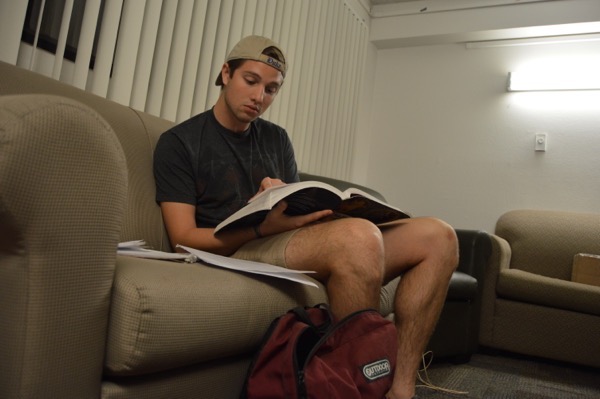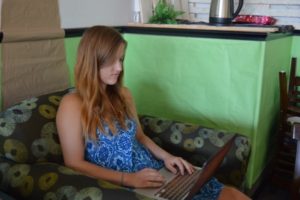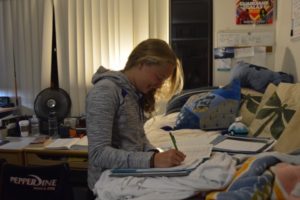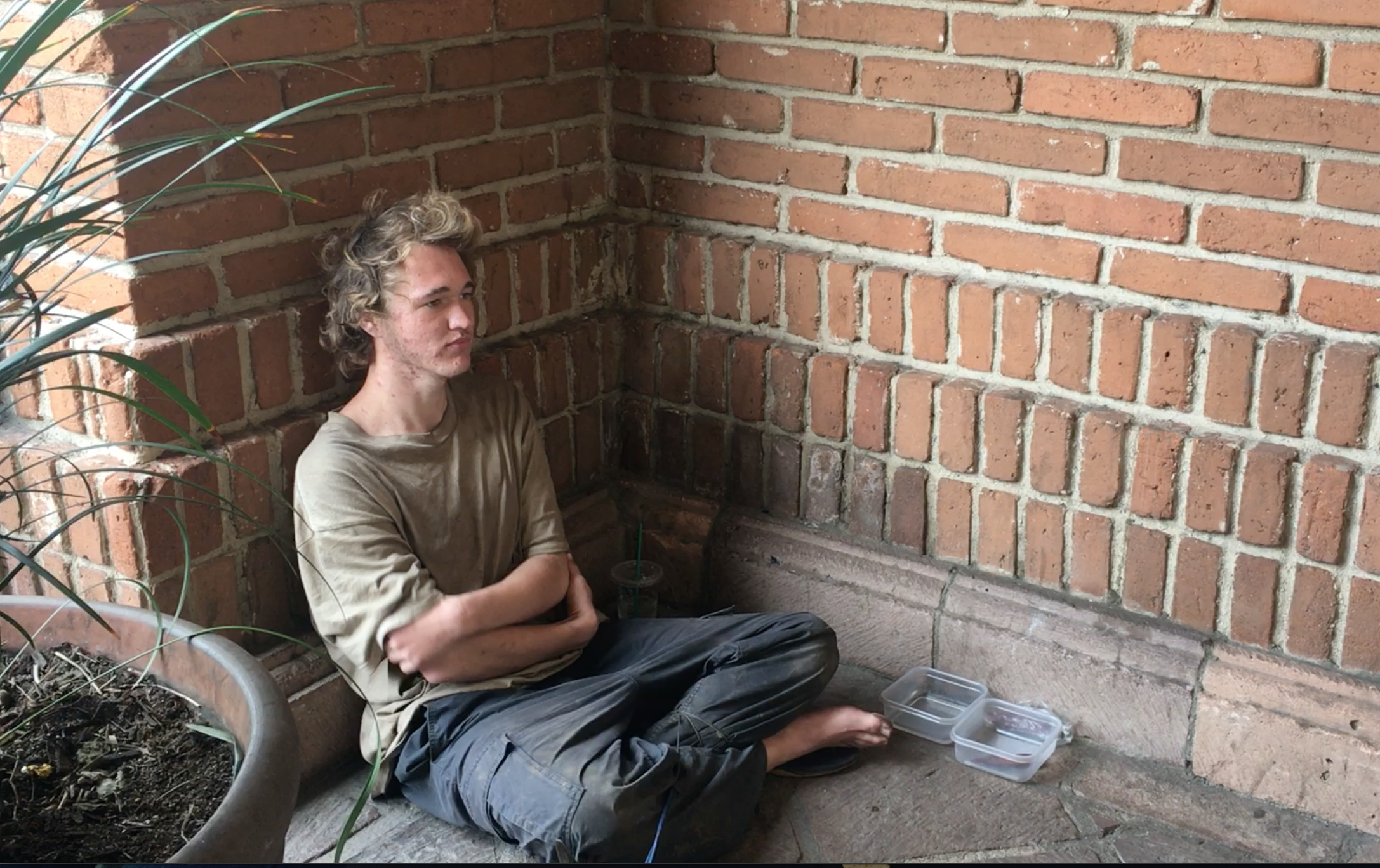
For some Pepperdine students, their first day of college marked the first time they went to school in a traditional classroom setting.
Despite stereotypes that homeschooled students are not competent socially, homeschooled students argued that homeschooling prepared them well for college because it taught them to be self-motivated and independent.
“Homeschooling allows you to choose what you learn and how you learn it as opposed to being in a classroom where there’s a bunch of other kids,” said Emma Inglehart, a freshman production design major who was homeschooled until high school. “You can learn the subjects better when it’s just one-on-one.”
Eighteen students, or 2 percent of Pepperdine’s entering 2016 class, were homeschooled, according to partial data from Pepperdine’s Office of Admissions.
The actual number may be larger, as the data does not include students whose application did not state they were homeschooled or students who switched from homeschooling to traditional school.
Pepperdine’s numbers are not far from the national average.
In the 2011-2012 school year, about 3 percent of school-age children in America were homeschooled, according to the latest data available, a 2011-2012 National Center of Educational Statistics survey of just under 52,000 students.
Most of Pepperdine’s homeschooled students said they were homeschooled so they could learn at their own pace without others hindering their speed.
Nationally, 91 percent of homeschooled students are homeschooled because parents are worried about issues in school such as substance use and peer pressure, according to the same national survey.
Each state has its own rules regarding the lengths parents must go through to homeschool their children, according to the Coalition for Responsible Home Education, a group that supports homeschooling. These rules make homeschooling simpler in some states than others.
Homeschooling: The pros and cons
While homeschooled students all said homeschooling positively changed their life and allowed them to personally shape their education, some said homeschooling lacked the social aspect they needed.
Jordan Aldrich, freshman international studies major, was homeschooled from fourth to eighth grade and was able to skip a year, compacting five years of study into four.
“I got to experience some things I never would have had I not been homeschooled,” Aldrich said. “It (homeschooling) … helped me to find out who I was without having the influence necessarily of a bunch of different people telling me who to be.”
However, Aldrich said she found homeschooling isolating, finding herself more social and talkative than most homeschoolers she encountered.

Michael Reyes, freshman business administration major, was homeschooled from first grade onward using his local high school’s curriculum.
“It (homeschooling) really helped me be more self-motivated and be able to learn at my own pace,” Reyes said.
Gabby Mathys, freshman chemistry and creative writing double major, was homeschooled from first to eighth grade. Mathys said while she loved the flexible schedule of homeschooling, she found it lonely.
“You didn’t really have anyone there besides your own family,” Mathys said. “There wasn’t any extra socializing. I was really awkward when I got to private school.”
Carrie Wall, assistant professor of teacher education at Pepperdine, said advantages to homeschooling include the flexibility of their education and schedule, allowing for individualized attention, family time and the ability to travel. They can take the same advanced placement classes as traditionally-schooled students, preparing themselves through online classes or other forms of preparation. Homeschooling also teaches students how to communicate effectively with other age groups.
“I’m not sure the best way to socialize a third grader is to have him or her, all day long, rubbing shoulders with other third graders,” Wall said. “The beautiful thing about homeschooling is this intergenerationality. There’s a lot more opportunities for across-age-group conversations when they get to other homeschooling groups. So you don’t have 5-years-olds exclusively with 5-year-olds all day long. I think that opportunity to build relationships … is really healthy.”
Wall said a disadvantage to homeschooling is how it can limit access to diversity and other groups of people. Furthermore, a parent must be able to stay home and be present to assist in their child’s education, determining the quality of the child’s teaching.
“You can hardly speak in generalizations when it comes to homeschooling because it really depends on the competency and the qualifications of the parent,” Wall said.
Homeschooled students learn to be engaged in their own learning and pursue subjects they are passionate about through their flexible schedule and education, where traditionally-schooled students learn for the sake of learning, Wall said.
“In many ways, they (homeschoolers) have had to develop this natural curiosity,” Wall said. “That’s one of the beautiful things about homeschooling is you can kind of take up different areas of your own personal interest. Traditionally-educated students probably have almost had the love of learning beaten out of them with all of our high-stakes testing.”
Wall said, in her experience, homeschooled students at Pepperdine are at the same level as their traditionally-schooled peers, as Pepperdine would not accept those who could not compete with others.
The best of both worlds: Mixing homeschooling with public or private schooling
While there are many students who were homeschooled up until college, several were only homeschooled for a portion of their life, such as Buddy Kennedy, a freshman theater and media production major.
Kennedy was homeschooled until high school, then attended private high school for two years, switching to public school afterward, Kennedy said.
“In my prime high school homeschooling game, I’d get done in two and a half, three hours at the max and then have the rest of my day,” Kennedy said. “In school, you’re there for six to eight hours and a lot of that is just sitting around, waiting for things to be done.”
Kennedy said while his diverse education has allowed him to connect with a wider variety of people, homeschooling prevented him from having long-lasting friendships.
Mathys said going through both homeschooling and traditional school pushed her to learn both social and academic skills. In private school, she learned concepts in science and math that she could not learn at home without a science teacher’s guidance.

“If I hadn’t had the combination, I feel like I would struggle a little bit more on math and probably wouldn’t even be involved with the majors I’m involved in,” Mathys said.
Amara West, freshman nutritional science major, was in a personalized school program for her first two years of high school, West said. She spent half of her day learning at a Christian private school and was homeschooled through packets for the other half.
“For me, it was the best of both worlds,” West said. “I’m very much an independent and introverted person. It allowed me to have the time that I needed, but allowed me to still be extroverted.”
Homeschooling parent’s perspective
Kindy De Long, associate professor of religion, homeschooled both of her children from preschool through high school alongside her husband.
Initially, her and her husband decided to go the homeschooling route to give their children more time to be creative and increase family time, De Long said. When the children got older, they decided to continue with homeschooling through high school.
“We liked the idea that they would spend less time in a structured school setting and more time being kids,” De Long said. “When you first start with kindergarten, you can do in about an hour what takes four or five hours in kindergarten to do.”
Her children were able to pursue their passions while being homeschooled, and partook in activities such as church youth group and sports, De Long said.
Stereotypes associated with homeschooling
Homeschooled students often face judgments of their education style, with many people assuming that homeschoolers are less social because they do not go to school in large classes, Kennedy said.
“The real stereotype of homeschoolers is that they’re really awkward and … you don’t know how to deal with people and handle yourself in the real world,” Kennedy said.
Inglehart said this stereotype pushed her not to tell others she was homeschooled to avoid others’ teasing.
“I didn’t want them to look at me differently,” Inglehart said. “Initially, they would kind of assume things about you and it was kind of up to you to prove them wrong.”
Some Pepperdine students that were not homeschooled said while they were aware of this stereotype, they did not find it to be true in most cases.
“There’s like an expectation that they’ll be more socially awkward, but I haven’t actually seen that in real life,” said Eileen Hornbostel, a freshman undeclared major who went to public school.
Wall said she also thought this stereotype was untrue, with students getting social time with different age groups in their everyday learning outside of the home and outside the traditional school setting. She said homeschooled students can spend time with other students through extracurriculars like sports and church as well.
De Long said some people criticized her and her husband for being homeschooling parents.
“We had people tell us that we were going to ruin our kids,” De Long said. “As homeschooling maybe became seen as more of a mainstream choice, we got less of that.”
While homeschooling worked for De Long and her family, it might not be right for others, De Long said.
“It’s not for every family,” De Long said. “I think that’s a very personal decision and the family needs to weigh the personalities involved.”
Madeleine Carr completed this story in Dr. Christina Littlefield’s fall 2016 Jour 241 class.


